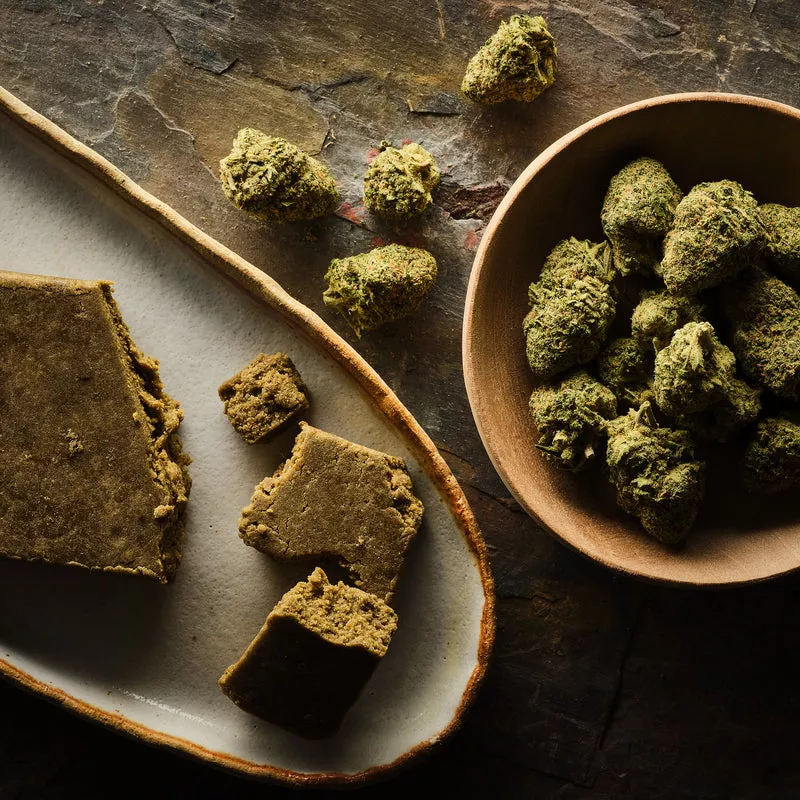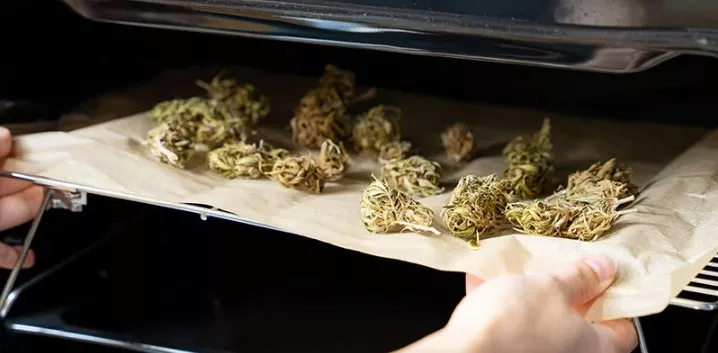- Shop All
- Type
- (144) THC>
- (75) CBD>
- Need
- Sleep>
- (21) Pain>
- (10) Anxiety>
- (6) Pets>
- (88) Edibles
- (14) CBD Edibles>
- (60) THC Edibles>
- (3) Ratio Edibles>
- (33) Hybrid Edibles>
- (87) Vegan>
- (5) Beverages>
- Strain
- (29) Indica>
- (24) Sativa>
- (47) Hybrid>
- (14) Tinctures
- (5) Anxiety Tinctures>
- (9) CBD Tincture>
- (1) Pain Tincture>
- (4) Ratio Tincture>
- (4) Sleep Tincture>
- (4) THC Tincture>
- (4) Capsules
- (1) CBD Capsules>
- (0) THC Capsules>
- (3) Ratio Capsules>
- Foggers
Rick Simpson Oil Vs Cbd Oil
Sarah LightfootJuly 28, 2023LatestContents
The Differences Between CBD Oil and Rick Simpson Oil
In recent years, cannabis oils have gained a lot of attention for their potential health benefits. Two of the most popular are CBD oil and Rick Simpson Oil (RSO). While they both come from the cannabis plant, these two oils have some important distinctions.
This article will explain everything you need to know about CBD oil versus RSO—how they’re made, their cannabinoid content, their effects, and their ideal uses. Read on to learn how to choose the right cannabis oil for your needs.
The Rise Of Cannabis Oils
Cannabis oils like CBD oil and RSO have skyrocketed in popularity thanks to a growing awareness of the health benefits of cannabinoids.
Cannabinoids are the natural chemical compounds found in cannabis plants. The two most abundant and well-studied cannabinoids are tetrahydrocannabinol (THC) and cannabidiol (CBD).
Research shows that THC and CBD have potential therapeutic uses for conditions like chronic pain, anxiety, epilepsy, cancer, and more. This has sparked huge interest in cannabis oils as natural wellness supplements.
While anecdotal evidence and early research is very promising, large scale human studies are still limited due to cannabis’ contested legal status. Still, public demand for cannabis oils is rapidly increasing as a natural alternative to pharmaceuticals.
Understanding The Cannabis Plant
To understand the differences between CBD and RSO, it’s helpful to first look at the cannabis plant varieties they come from.
Hemp
Hemp is a cannabis species that has been selectively bred for industrial uses. Hemp is characterized by tall, fibrous stalks and low cannabinoid content.
By law, hemp must contain no more than 0.3% THC content. Hemp is legal to cultivate in most countries for use in textiles, building materials, biofuels, and more.
Recently, high-CBD hemp is also used to create CBD oil supplements.
Marijuana
Marijuana refers to cannabis strains intentionally bred for high THC and cannabinoid content. These are the psychoactive “drug” strains of cannabis.
Marijuana plants are shorter and stubbier than hemp and have resinous buds rich in cannabinoids like THC and CBD. Medical marijuana strains specifically boast high therapeutic cannabinoid levels.
Understanding The Oils
Now that we’ve covered the cannabis varieties, let’s look at how CBD oil and RSO oil are made and what sets them apart.
What Is CBD Oil?
CBD oil is an oil-based extract derived from cannabis plants. CBD oil can come from both hemp or marijuana, but is dominantly extracted from hemp for legal purposes.
The process starts with raw hemp plant material. Advanced extraction methods are used to pull out beneficial compounds. The result is CBD oil with high concentrations of CBD and only trace amounts of THC.
Typical cannabinoid content of CBD oil:
- 2.5% to 20% CBD
- 0% to 0.3% THC
Since CBD oil contains very little THC, it does not produce psychoactive effects. The high CBD content offers health benefits without causing a “high.”
CBD oil can be taken as oral drops, capsules, edibles, vape liquid, topicals and more. It’s legal to buy and use in most countries as a wellness supplement.
What Is Rick Simpson Oil?
Rick Simpson Oil (RSO) is a cannabis oil made from marijuana, not hemp. It has very high THC and CBD levels compared to other cannabis oils.
RSO was developed by Canadian medical marijuana activist Rick Simpson. It’s usually made from indica cannabis strains to maximize medicinal cannabinoid levels.
The entire marijuana plant is used to extract RSO. The final oil is thick and tar-like with a strong herbal taste.
Typical cannabinoid content of RSO:
- 50% to 60% THC
- 10% to 15% CBD
- Contains other cannabinoids like CBN, CBG, etc.
The very high THC content gives RSO powerful psychoactive effects. It also means RSO is illegal in most places, while CBD oil is legal.
RSO is taken orally by placing a small amount like a grain of rice on the gums or mixing into edibles. It’s known for being a full-spectrum medicinal cannabis oil.
Comparing Cannabinoids
Now that we know how CBD and RSO oils are made, the key difference lies in their cannabinoid content.
CBD oil contains mostly isolated CBD with little to no THC. RSO is a concentrated full plant extract containing high levels of THC.
Research indicates THC has many potential therapeutic uses which is why it is an important part of cannabis oil therapies.
Here’s an overview of the major cannabinoids in RSO vs CBD oil:
Tetrahydrocannabinol (THC)
THC is the main psychoactive compound responsible for the “high” in marijuana. It has shown promise for pain relief, nausea, appetite stimulation, and more.
RSO has 50-60% THC content. CBD oil has none or only trace amounts.
Cannabidiol (CBD)
CBD is a non-intoxicating compound with anti-inflammatory, analgesic, anxiolytic, and neuroprotective properties. It’s widely used for various health and wellness purposes.
Both RSO and CBD oil contain CBD, but at different levels. RSO typically has 10-15% CBD, while CBD oil has high concentrations nearing 20% CBD.
Other Cannabinoids
RSO also contains meaningful levels of CBN, CBG, THCV, and other minor cannabinoids. Most CBD oils only contain CBD.
This gives RSO more of a “full-spectrum” effect compared to CBD alone. Research shows cannabinoids work synergistically with each other.
Key Differences Summary
To recap, here are the key differences between the two cannabis oils:
- CBD oil is extracted from hemp, RSO comes from marijuana
- CBD oil has high CBD and no THC, RSO has both CBD and THC
- CBD oil causes no high, while RSO causes a strong high
- CBD oil is legal worldwide, RSO is restricted in most places
While they share similarities, their contents and effects set them far apart. Now let’s look at how to choose between using CBD or RSO.
Choosing Between CBD and RSO
When deciding between CBD oil and RSO, there are a few main factors to consider:
Your Cannabinoid Needs
Do you only need the health benefits of CBD? Or are you looking for the holistic effects of THC and full plant medicine? This will determine whether CBD or RSO is more appropriate.
RSO provides the synergistic effects of THC, CBD and other cannabinoids. CBD alone may not be enough for some conditions.
Product Availability
CBD oil is legal in most places and easy to find. RSO is much harder to source due to limits on recreational marijuana.
Make sure you have reliable access to your chosen oil. Purchasing online is safest for RSO access.
Psychoactivity
RSO will cause an intense high that lasts several hours. CBD will not make you feel stoned.
If you need to function or avoid intoxication, stick with a CBD oil. Only use RSO if the psychoactivity is not an issue.
Usage Goal
What symptoms are you looking to alleviate? Consider your usage goals and which oil aligns best.
For example, RSO may be better for reducing cancer risk or appetite stimulation. CBD may be ideal for everyday stress or anxiety relief.
Summary: Which Oil is Right For You?
Now that you understand the key differences between CBD oil and RSO, deciding which one to use depends on your health goals and lifestyle needs.
Here is a quick guide on when to choose each oil:
Choose CBD oil if:
- You only want to experience CBD benefits
- You want no intoxication
- You need reliable legal access
- You have anxiety, pain, inflammation
Choose RSO if:
- You want full plant cannabinoid therapy
- THC psychoactivity is not a concern
- You have access to purchase it
- You need appetite stimulation, sleep aid, anti-cancer effects
Both CBD oil and RSO have advantages unique to each. By learning how they differ, you can make an informed cannabis oil choice for the health benefits you seek.
0/5 (0 Reviews)Latestfrom B+FBe the first to know about exciting new products, special events, seasonal offers, and much moreOur Collective
Wellness to your doorstepCopyright © 2024 All Rights Reserved | BIRCH + FOG[gtranslate]Save your cart?
x










